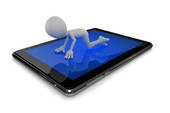A.
Asking for Information:
There are a number of formulas used when asking for information in English. Here are some of the most common:
- Could you tell me…?
- Do you know….?
- Do you happen to know…?
- I’d like to know…?
- Could you find out….?
- I’m interested in….
- I’m looking for….
- These two forms are used for asking for information on the telephone:
- I’m calling to find out…
- I’m calling about….
B.
Construction
Could you tell me when the next bus leaves?
Do you know how much that pen costs?
Do you happen to know where John lives?
I’d like to know what you think about the new project.
Could you find out when he is going to arrive?
I’m interested in buying a house.
I’m looking for information on holidays in Kerala.
I’m calling to find out… if flight AD123 will leave on time today.
I’m calling about… the offer, you announced in TV.
C.
Conversation Practice I
A. What’s the matter?
B. I need some information.
A. Go to that desk over there.
B. Thank you very much.
A. Can you help me, please?
C. I’ll try to.
A. What’s the best way to get to this address?
C. I’m sorry, I really don’t know.
A. How can I get to that address?
D. You can go by train.
A. Isn’t there any other way?
D. Yes, by bus, but it’s complicated.
A. How do I get to the nearest Railway station?
D. It’s two furlong up that street.
A. Do you mean the street running that way?
D. Yes. That’s the one.
A. Is this the right way to Central Station?
D. No. You’re going the wrong way.
A. Which way should I be going then?
D. It’s in that direction-about one Kilometer.
D.
Some commonly used word groups for asking Information.
Excuse me.
Do you know the way to the Post Office?
Could you tell me which bus goes to Miyapur circle?
I’m looking for a place to stay.
Is there a good hotel around here?
Could you tell me why today’s Hyderabad
What time is the Bangalore Express due in, please?
Could you please tell me how to get to this address?
I want to catch the Dubai
Could you tell me where the Railway Station is, please?
Could you help me?
How much is the fare to Chennai?
How much rent are you quoting?
What time is it?
What are your rates?
What time is the news on?
You wouldn’t know if there’s any other way, would you?
How much does a ticket to Kolkata cost, please?
Who can I ask for some information?
What’s the date today?
What sort of time did you want to go?
I’m sorry to trouble you, but do you happen to know where the canteen is?
Excuse me, where is the Canteen?
Could you tell me when the bus for Kochi
Any idea how long he’ll be here?
Do you know how far it’s to the next petrol Pump?
When’s the next bus to Mysore



















































